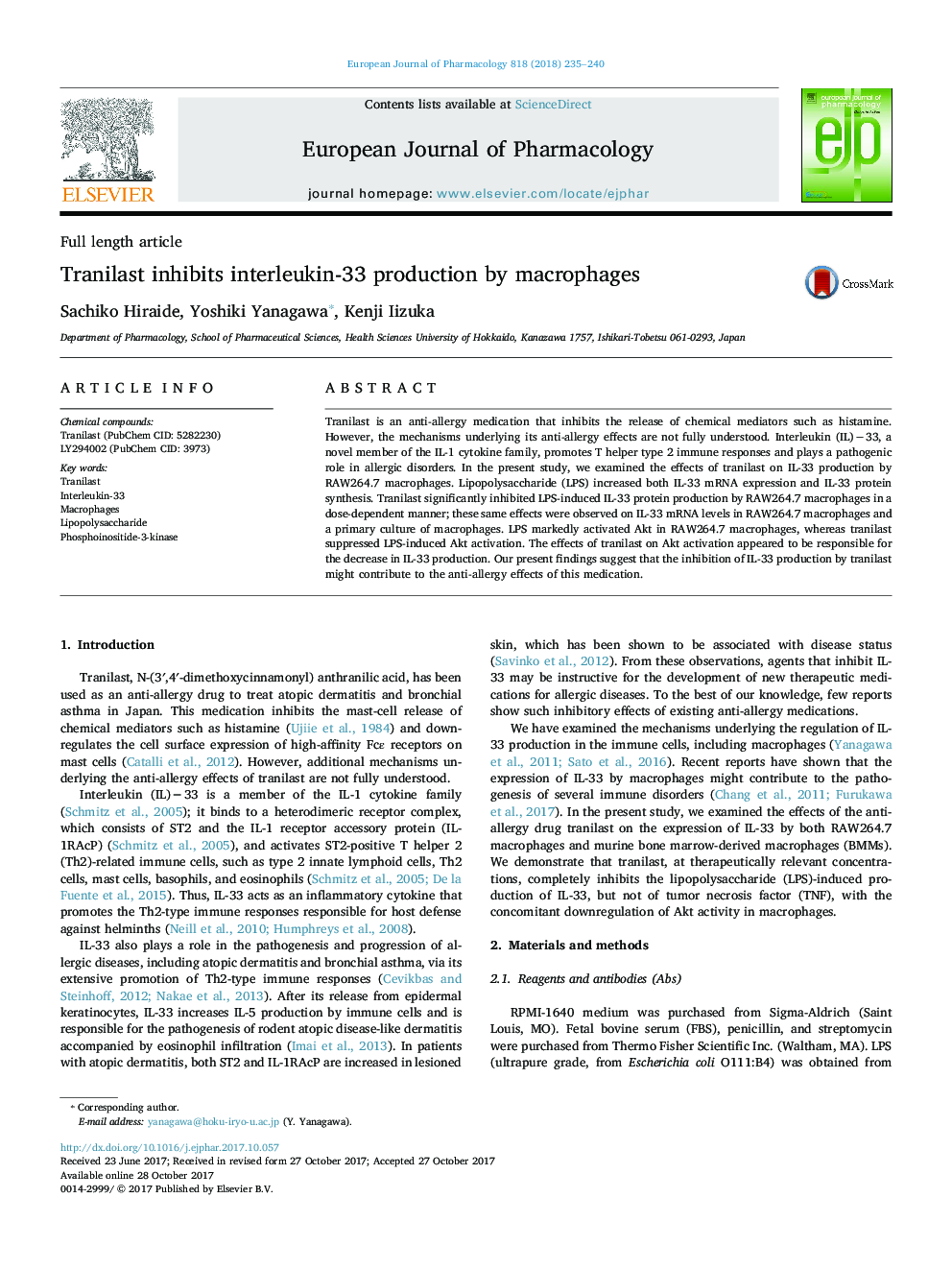| Article ID | Journal | Published Year | Pages | File Type |
|---|---|---|---|---|
| 8529914 | European Journal of Pharmacology | 2018 | 6 Pages |
Abstract
Tranilast is an anti-allergy medication that inhibits the release of chemical mediators such as histamine. However, the mechanisms underlying its anti-allergy effects are not fully understood. Interleukin (IL)â33, a novel member of the IL-1 cytokine family, promotes T helper type 2 immune responses and plays a pathogenic role in allergic disorders. In the present study, we examined the effects of tranilast on IL-33 production by RAW264.7 macrophages. Lipopolysaccharide (LPS) increased both IL-33 mRNA expression and IL-33 protein synthesis. Tranilast significantly inhibited LPS-induced IL-33 protein production by RAW264.7 macrophages in a dose-dependent manner; these same effects were observed on IL-33 mRNA levels in RAW264.7 macrophages and a primary culture of macrophages. LPS markedly activated Akt in RAW264.7 macrophages, whereas tranilast suppressed LPS-induced Akt activation. The effects of tranilast on Akt activation appeared to be responsible for the decrease in IL-33 production. Our present findings suggest that the inhibition of IL-33 production by tranilast might contribute to the anti-allergy effects of this medication.
Keywords
Related Topics
Life Sciences
Neuroscience
Cellular and Molecular Neuroscience
Authors
Sachiko Hiraide, Yoshiki Yanagawa, Kenji Iizuka,
